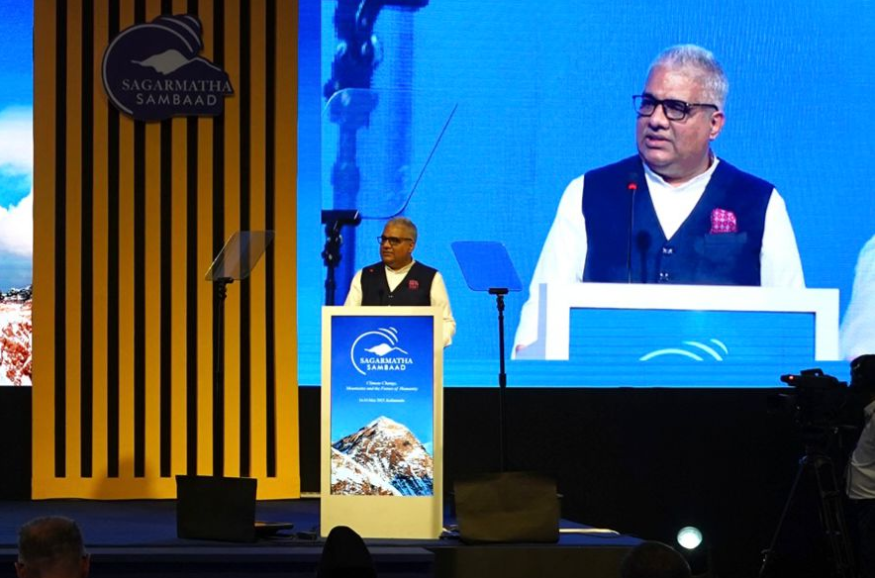Kathmandu — India’s Minister for Environment, Forest and Climate Change, Bhupender Yadav, has called for global cooperation to protect Himalayan ecosystems.
Representing India at the inaugural session of the first Sagarmatha Sambaad held in Nepal today, Minister Yadav made this appeal.
The high-level international dialogue was held under the central theme “Climate Change, Mountains, and the Future of Humanity”, and saw the participation of ministers, climate experts, and leaders from various countries.
In his address, Minister Yadav reiterated India’s unwavering commitment to combating climate change and emphasized the need for both regional and international cooperation in conserving the Himalayas and other mountain ecosystems.
He noted that although South Asia is responsible for only 4% of the world’s historical carbon emissions, nearly 25% of the global population living in the region faces the brunt of the climate crisis. He urged developed nations to fulfill their commitments regarding climate finance, technology transfer, and capacity building.
Highlighting the ecological significance of high-altitude regions, Yadav called for strengthened transboundary conservation efforts. He advocated for joint action under the International Big Cats Alliance to protect species such as snow leopards, tigers, and leopards. Citing Project Snow Leopard initiated by Indian Prime Minister Narendra Modi, Yadav shared findings from India’s first comprehensive snow leopard population assessment (2019–2023), which recorded 718 snow leopards—representing around 10–15% of the global population.
Minister Yadav presented a five-point global action plan focusing on expanding scientific collaboration, building climate-resilient infrastructure, empowering mountain communities, ensuring green finance, and incorporating mountain issues into global climate dialogues. He stressed the importance of integrating traditional knowledge and lifestyles of local communities into climate policy.
Concluding his address, Yadav affirmed India’s readiness to work with Nepal and other mountain nations to conserve shared ecological heritage. Emphasizing the spirit of Vasudhaiva Kutumbakam—the world is one family—he stated that sacred mountains must be preserved as symbols of hope and sustainability.





